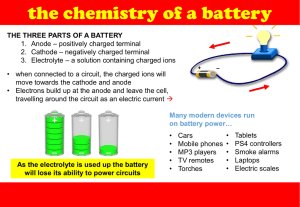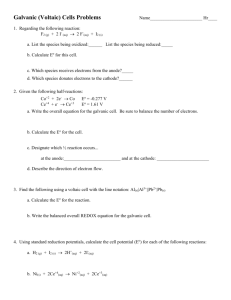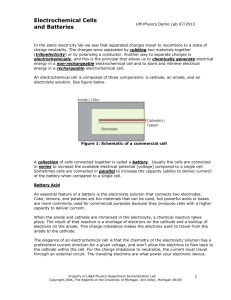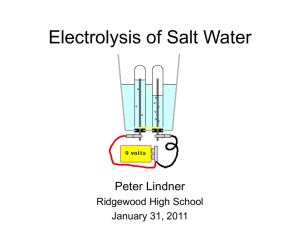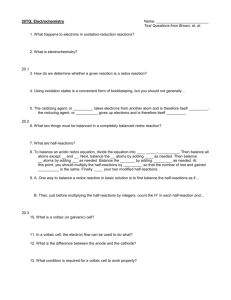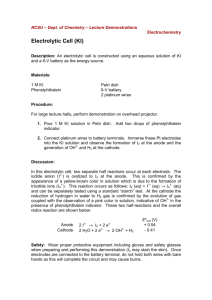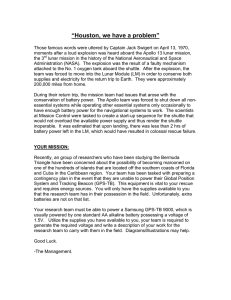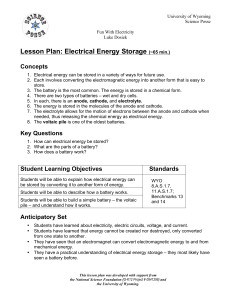Electrical Energy Storage Science Posse University of Wyoming
advertisement
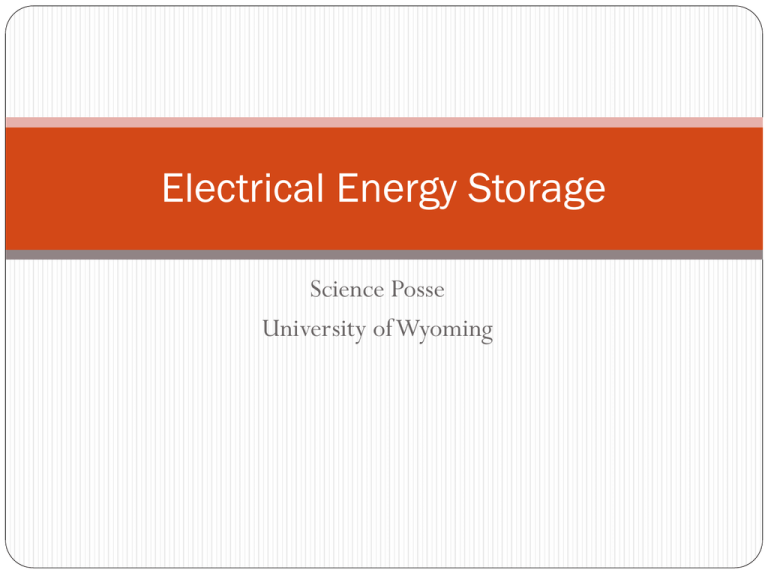
Electrical Energy Storage Science Posse University of Wyoming Electrical Energy Storage How is electrical energy stored? By converting the electromagnetic energy into another form Storing the energy in another form is much easier than directly storing the electricity Electrical Energy Storage Some types of electrical energy storage are The battery – Uses the electromagnetic properties of certain molecules to get electricity from chemical energy The fuel cell – Electricity is used to break water into hydrogen and oxygen. When the electricity is needed again, the gasses are recombined, releasing water and electricity. The fly wheel – Electricity is used in a motor to spin a heavy object (several pounds). Then the object is spinning rapidly, the motor is turned off, and the object spins on its own momentum. When electricity is needed, the spinning object is used to run a generator, thus creating electricity. The Battery The battery has three main parts The anode The part that has an excess of electrons, giving it a negative charge The cathode The part that has a shortage of electrons, giving it a positive charge The electrolyte A substance that forms a boundary between the anode and cathode. Full of ions. Ions are molecules or atoms that have an unbalanced number of electrons, so they have a charge of some sort. The Battery The anodes and cathodes are typically a conductive metal The electrolyte is a substance that is highly ionic like an acid or base (i.e. “battery acid”). Some household products make good electrolytes like lemon juice, salt water, vinegar, etc. The Battery – How it Works The electrolyte is placed in between the anode and the cathode. A chemical reaction takes place where the electrolytes ions remove electrons from the cathode and give them to the anode. This creates the unbalance of electrons and the positive and negative charges on the cathode and anode The Battery – How it Works When the battery is connected to an electric circuit, the excess of electrons of the anode are given a path to flow back to the cathode. This returns the battery to a balanced, neutral state. This is how a battery is “drained.” The Voltaic Pile Invented in 1800 by Alessandro Voltaire One of the first batteries Consists of several Voltaic Cells stacked on each other Each Voltaic Cell consists of a piece of copper, which acts as the cathode, a piece of zinc, which acts as the anode, and a piece of paper soaked in an electrolyte. The Voltaic Pile The Voltaic Cell
